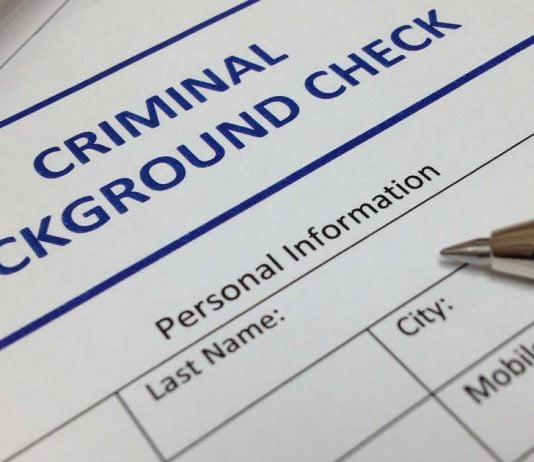A background check is a procedure used by an individual or a company to check a person’s background, including any criminal history, education, employment history, and other information, to make the best decision. You might have to undergo a background check if you’re applying for a job, buying a weapon, or leasing a new property.
A background check typically starts with verifying someone’s identity based on the ID documents they provide, including their SSN and date of birth. Then, the background check service conducts searches using a number of court records and other public databases, depending on the type of information they are looking for.
Contents
How long does a background check take?
The most important consideration for the majority of candidates is how long a background check takes. The time frame typically ranges from two to five business days. That said, everyone’s history is different, and there are certain factors that can lead to delays.
What appears on a background check?
A background check can provide different information about someone’s past relative to their work history, criminal history, education, credit report, etc. Various types of checks are available, so what appears on one will vary depending on the type of search conducted. The specific type of background screening is often based on the job and the type of information needed to make a good hiring decision.
Each type of background check uncovers different personal information. It’s important for both job candidates and employers to understand the type of information that’s included and how it can be used.
Criminal history
A pre-employment background screening usually includes a probe for criminal history. The employer or a third party can search county, state, and federal databases when conducting a criminal background check.
Applicants and employers have questions about background checks, like whether misdemeanors and arrests will show up. Criminal background checks will show misdemeanor and felony convictions, pending criminal cases, and prison sentences. Arrests that didn’t result in a criminal conviction may be reported. Typically, records of juvenile detention and convictions that a court has sealed don’t emerge from a criminal background check. In some states, disclosure of criminal convictions is not allowed after a certain period of time.
Bench warrants and open arrest warrants usually do not appear. An executed warrant becomes part of the applicant’s criminal record and will appear in a background check.
Employment history
Employment screening can confirm if the candidate has provided accurate information and make sure their experience and skills are adequate to fulfill the position’s requirements. The person performing the screening contacts previous employers to verify the candidate’s employment details, including beginning and end dates of employment.
Academic history
Academic history verification is used to confirm educational experience at colleges, high schools, vocational schools, and universities. Also known as an education background check, it involves contacting the institutions listed on the applicant’s resume to verify the following:
- Enrollment
- Type of degree or certificate obtained
- Dates of attendance
- Graduation date or completion status
Driving history
Reviewing a candidate’s driving history is important for positions where staff, contractors, or volunteers will have to drive or operate machinery. To reduce risk and maintain safety protocols, a potential employer might conduct a driving record check. This check can include the following information:
- Driver’s license status (valid, suspended, expired, etc.)
- Felony and misdemeanor convictions (DUI, DWI)
- Class (commercial driver’s license, operator, etc.)
- Moving violations, suspensions, and restrictions
Employers with commercial vehicle drivers or operating in other regulated industries might be required to run pre- and post-employment checks. In some states, school bus drivers, ridesharing app drivers, and other people in safety-sensitive positions might have to undergo these background checks, both before being hired and annually thereafter.
Most important compliance laws
All entities carrying out background checks must comply with the provisions of the Fair Credit Reporting Act (FCRA) and ban-the-box laws, where applicable, and follow Equal Employment Opportunity Commission (EEOC) guidelines.
The FCRA mandates employers to ask candidates for written permission to conduct a background check. It also has requirements related to adverse action procedures to be followed if the background check reveals information that can impact the hiring decision adversely.
The first ban-the-box laws were passed in 1998. Hawaii became the first state to adopt a law banning companies from asking job candidates about criminal history pending a conditional offer. A few other states have followed suit since, with a focus on eradicating barriers that make it challenging for people with criminal records to obtain employment.
Finally, EEOC guidelines aim to prevent employers from carrying out background checks in a way that could deny equal opportunity to candidates based on protected categories in accordance with Title VII of the Civil Rights Act.


